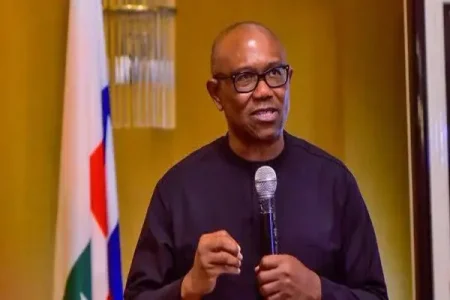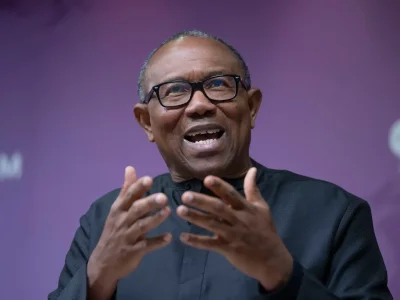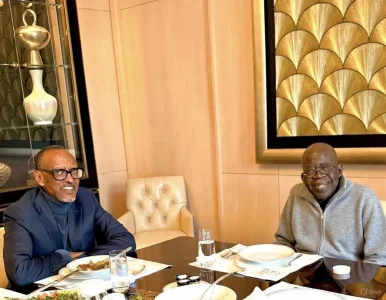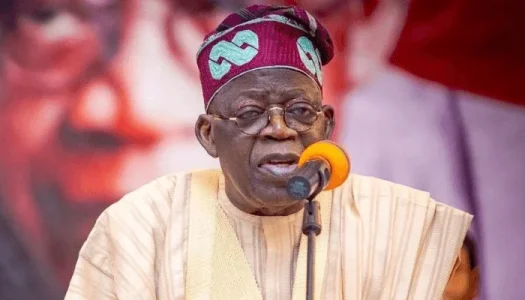
Peter Obi critiqued President Bola Tinubu’s first year in office, highlighting economic declines such as the Naira's depreciation and rising fuel and food prices. Nigerians reacted strongly on social media, with many interpreting Obi's remarks as a sarcastic commentary on Tinubu's continuation of Buhari’s policies.
In a recent interview with Arise TV, Labour Party’s 2023 presidential candidate, Peter Obi, delivered a scathing critique of President Bola Tinubu's first year in office, sparking widespread reactions among Nigerians. Obi remarked, “I think President Tinubu has performed exceptionally well in his first year in office. He has kept his campaign promises. In his words, ‘I will continue from where Buhari stopped,’ and he has done so.”
Obi highlighted several economic indicators to support his point. He noted the significant depreciation of the Naira, stating, “Dollar was N460, is now N1,500.” He pointed out the rise in fuel prices from N238 to about N700, and diesel prices escalating from N844 to N1,415. He also mentioned the surge in the cost of a bag of rice from N30,000-N35,000 to about N80,000.
Furthermore, Obi lamented Nigeria's declining economic standing. “When Tinubu assumed office last year, Nigeria was the biggest economy in Africa but today, we are the 4th, with South Africa, Egypt, and Algeria ahead of us in GDP. Our per capita is even worse,” he said.
Nigerians swiftly took to social media to express their views on Obi’s remarks. One user commented on the irony, stating that treating malaria has now become a luxury. Another noted the drastic decline in living standards, mentioning that basic food items like corn are now scarce compared to Buhari’s tenure.
Some respondents appreciated Obi's sarcasm, interpreting his remarks as a sharp critique masked in praise. One user noted that Tinubu has indeed fulfilled his promises, albeit in a negative context by reducing the purchasing power of Nigerians. Another comment highlighted Obi's ability to subtly criticize Tinubu, dubbing him the "people’s president" for his honest assessment.
Others emphasized the need for genuine change, criticizing Tinubu's continuation of Buhari’s policies. They argued that these policies have exacerbated Nigeria's problems rather than solving them.
Obi's statement and the ensuing reactions reflect the deep frustrations and economic challenges facing Nigerians today. The discourse underscores the demand for real change and a departure from the failed leadership strategies of the past.




